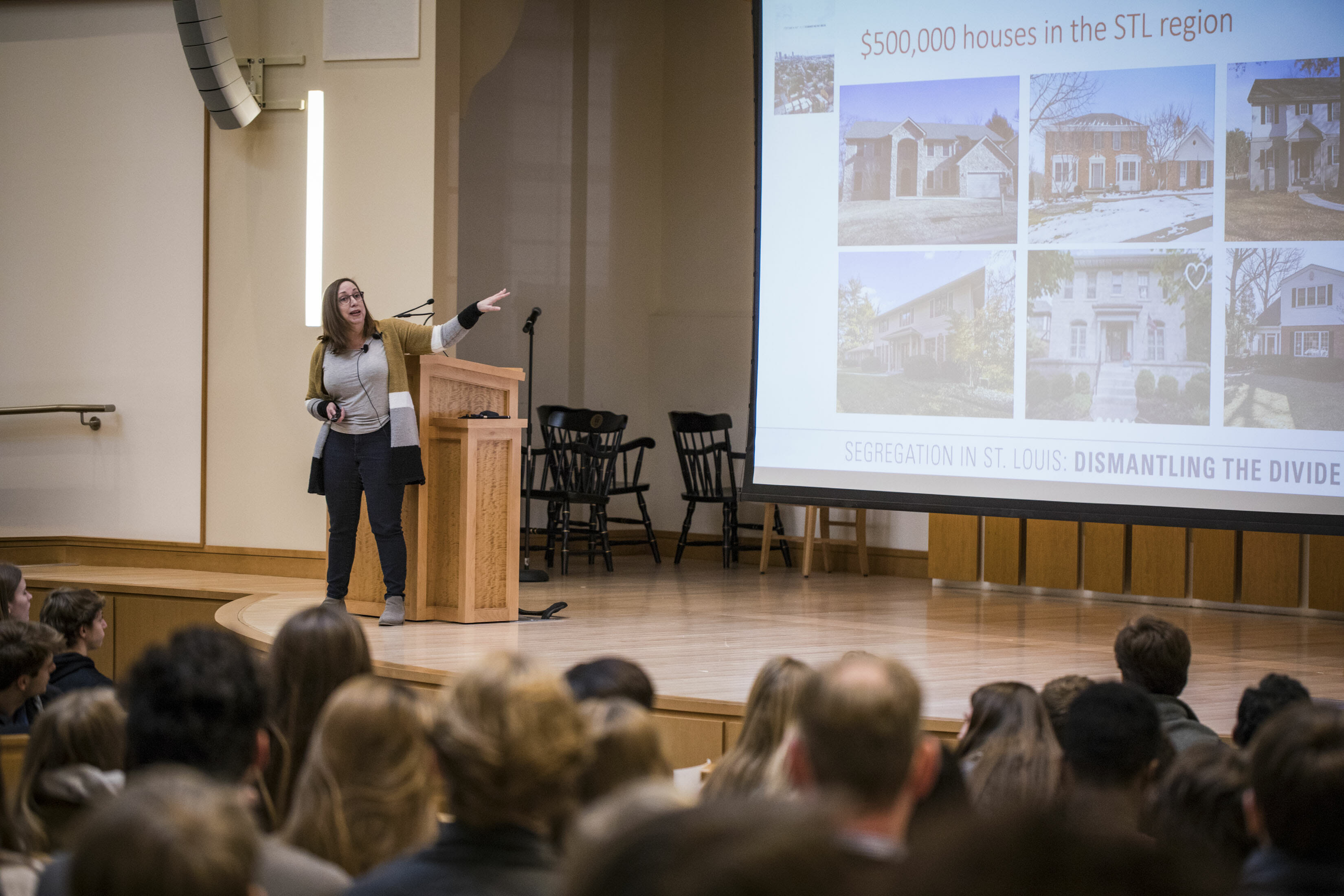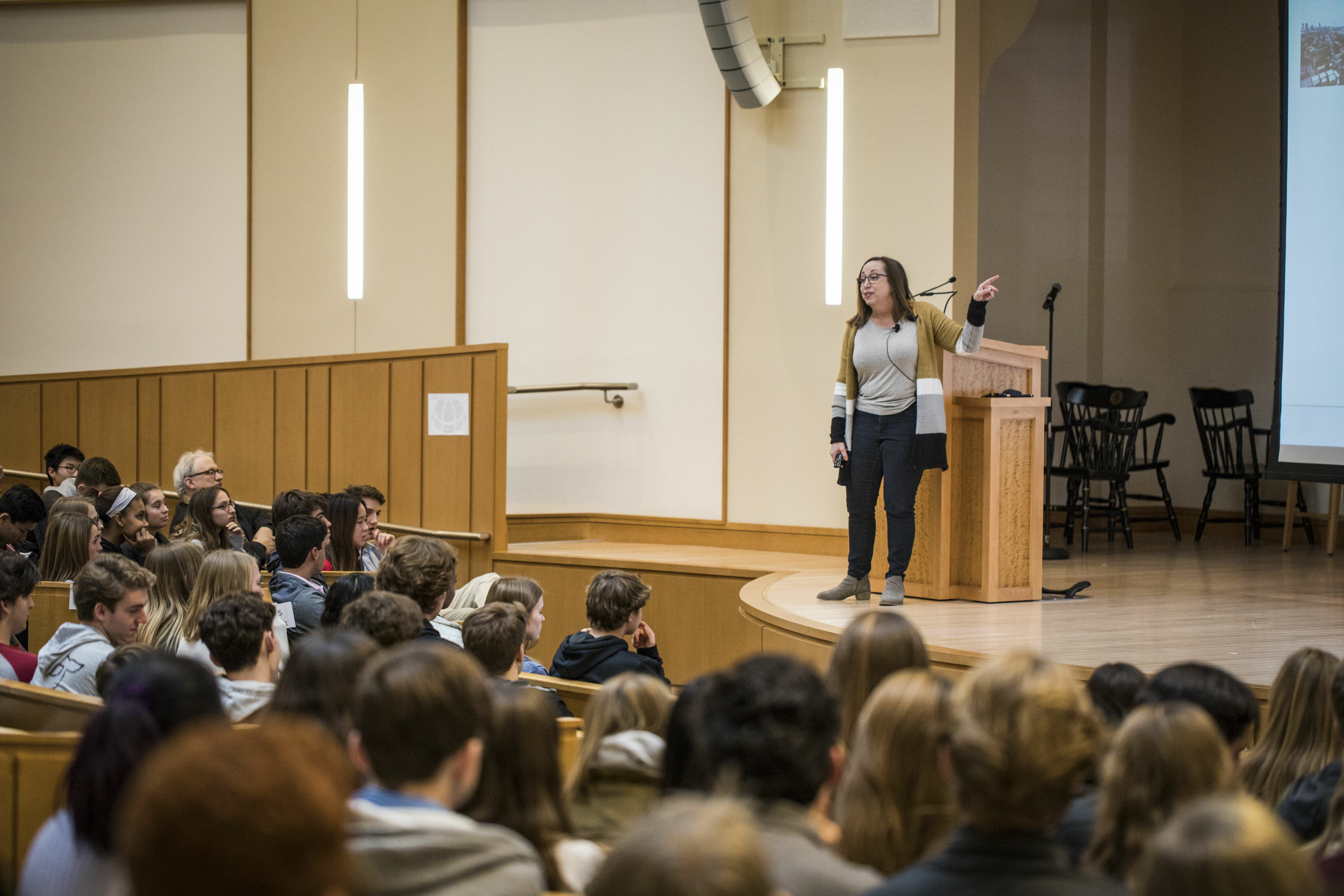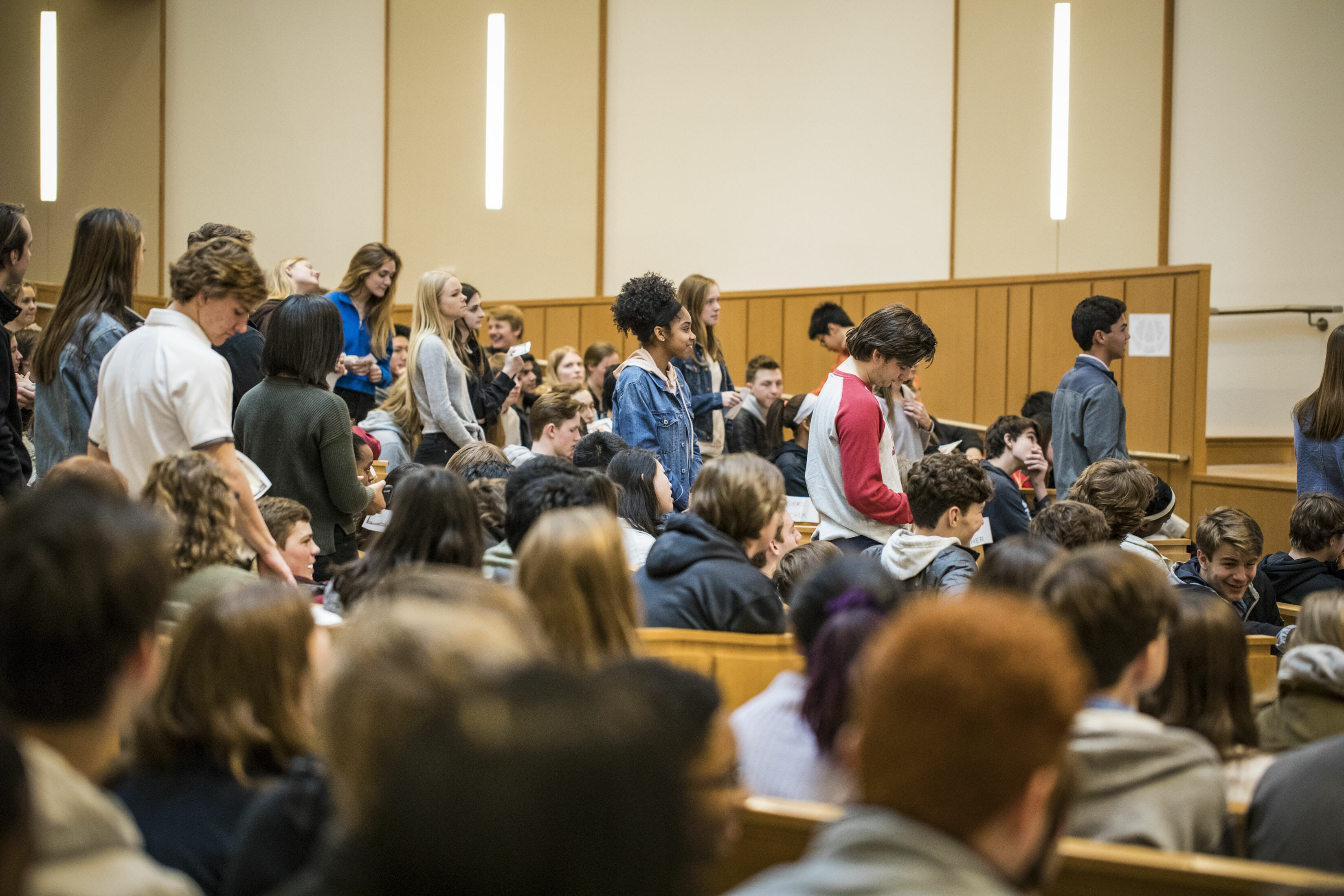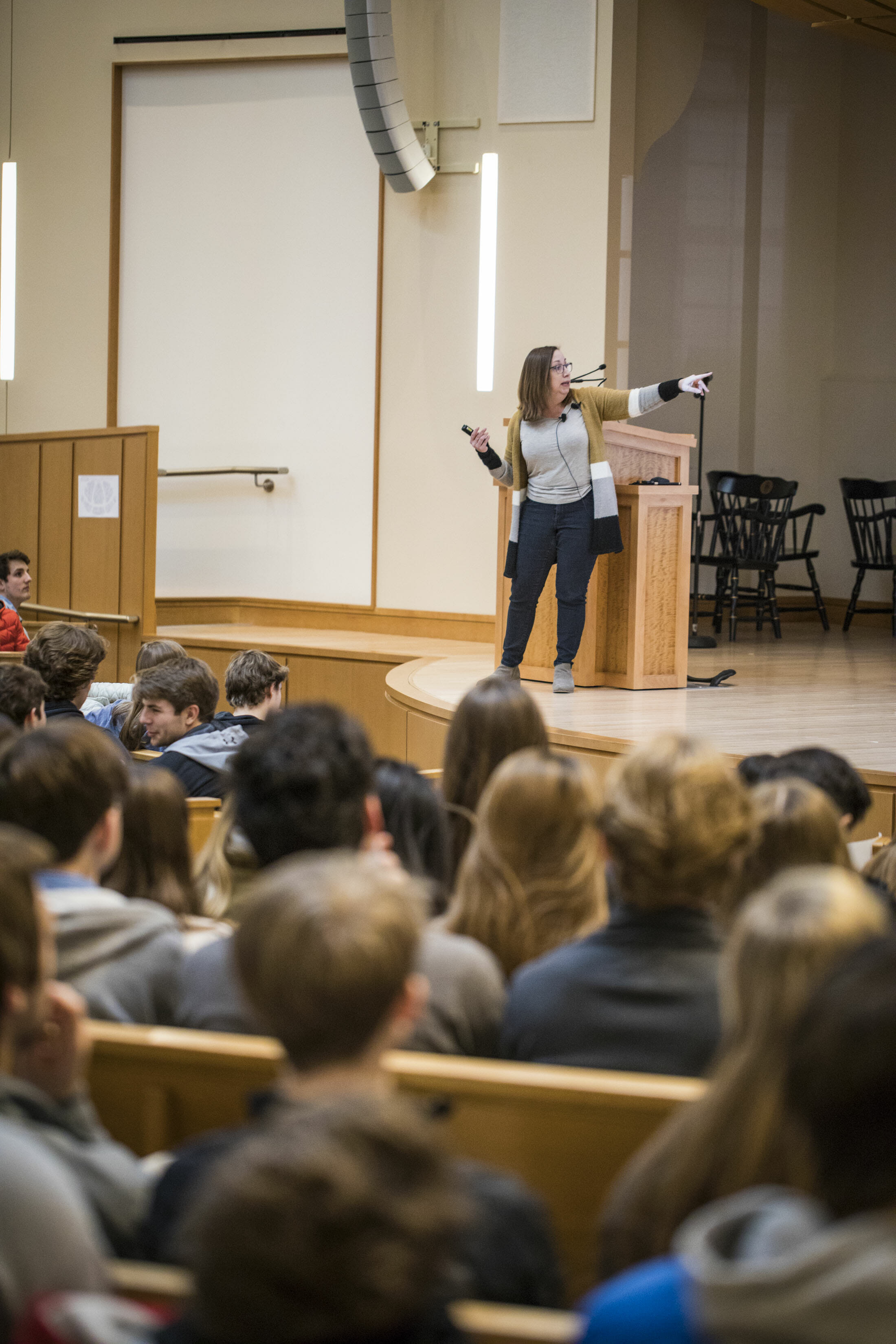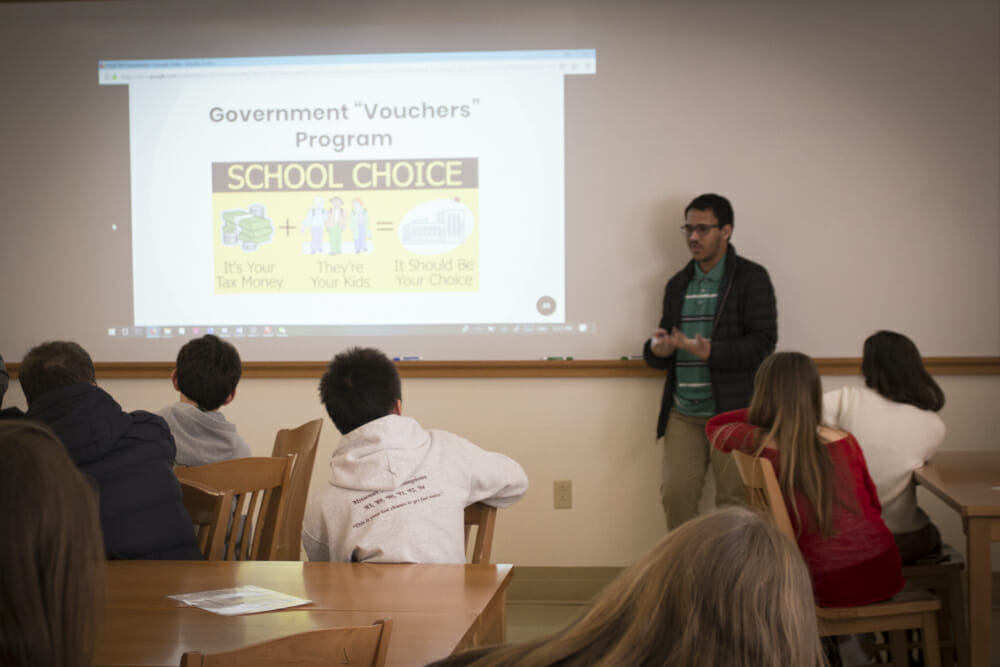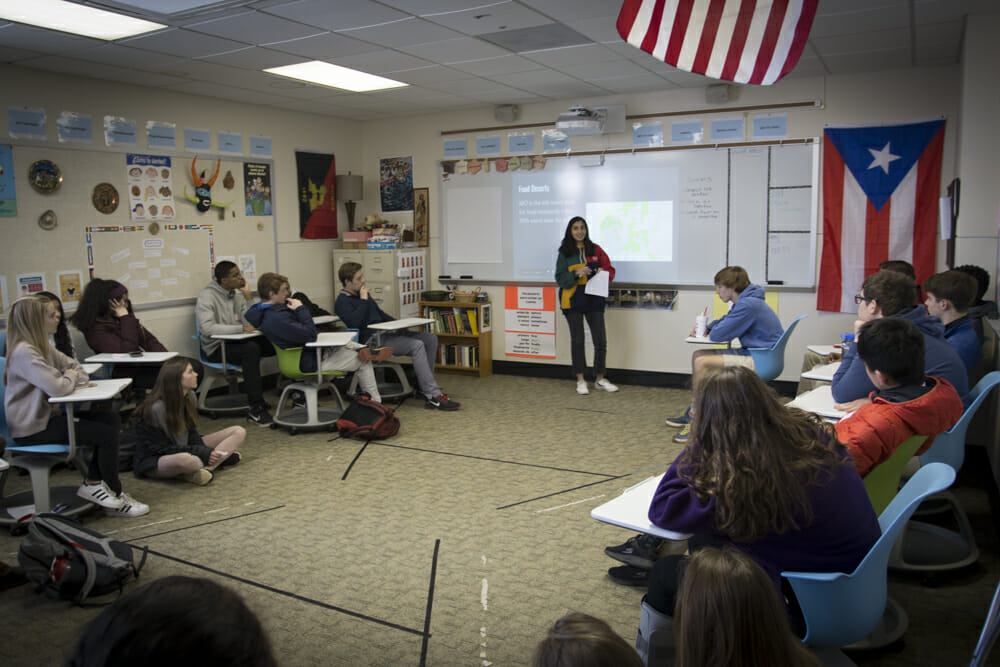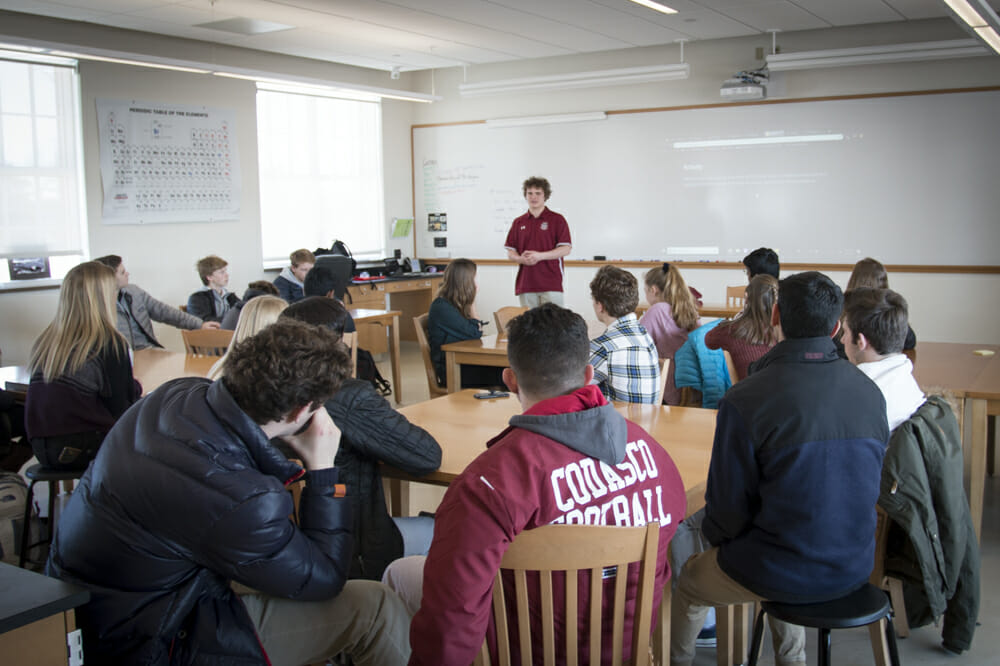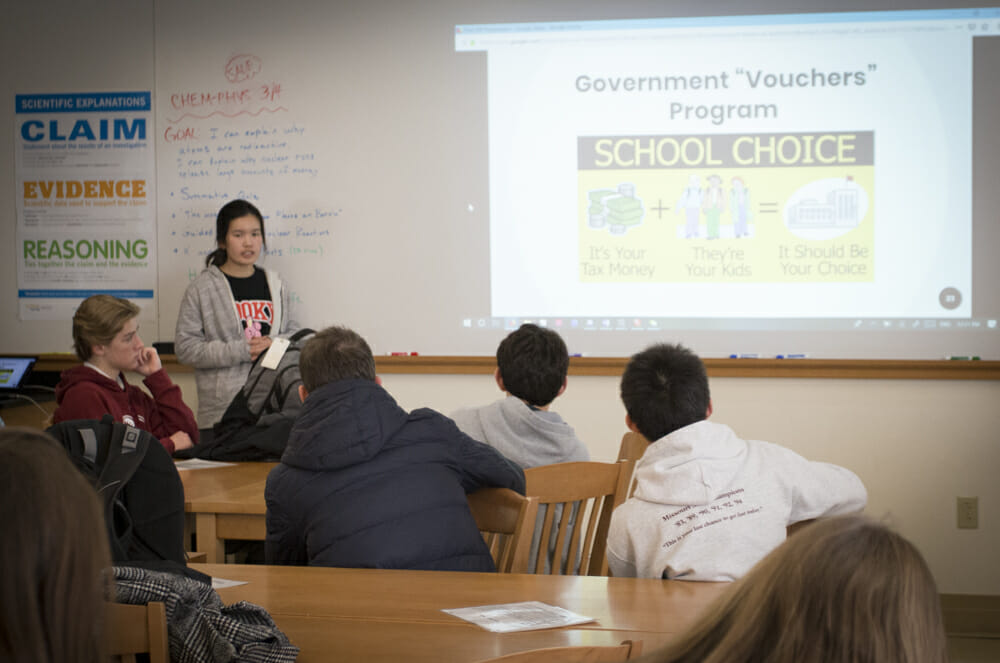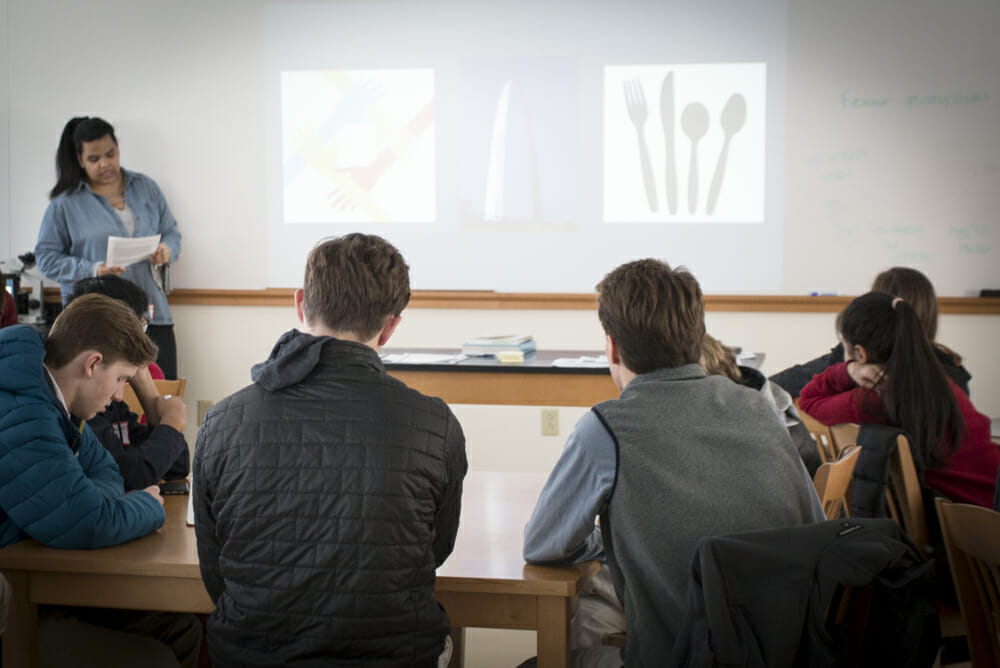Upper Schoolers focused on St. Louis for this year’s Carpe Diem Day. Part one of this two-part exploration included an eye-opening presentation by Nancy Cambria, one of the authors of the report Segregation in St. Louis: Dismantling the Divide. Ms. Cambria, also an MICDS parent, spoke about the issue of segregation in St. Louis and its role in shaping the lives of people in the region based on their zip code. “We did not get this way by accident,” she said. “More than a century of federal, state and local policies and programs actively segregated African Americans from housing and opportunity.” Ms. Cambria also shared findings from the For the Sake of All Study that looked at social determinants of health. The study shows that where someone lives in St. Louis is almost more important to health outcomes than genetic make-up. There is an 18-year gap in life expectancy between people born in Clayton and those born in JeffVanderLou. Watch Ms. Cambria’s full presentation in the video at the end of this story.
For part two of this exploration, Upper School Student Council organized Carpe Diem Day to build upon the information that Ms. Cambria delivered in her report. They chose to focus on four areas: St. Louis housing, healthcare, food and retail, and jobs and education. Students met in smaller groups that centered on one of these four areas for two sessions.
Student peers whose 3RP projects focused on these topics delivered 30-minute informational seminars. After hearing from their peers, small groups engaged in “design sprinting,” problem-solving workshops where students used their newfound knowledge to brainstorm solutions for these issues. They talked about how we can individually and collectively support St. Louis in these areas. “The goal of the second session is to have actionable items for our MICDS community to consider for community service,” shares Upper School History Teacher Marshall McCurties. “We are excited to do our part to better the St. Louis community, and we hope that this day will facilitate constructive dialogue and better our own community here at MICDS.”
